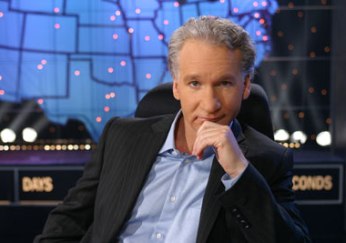Last Wednesday, (Mar. 21) comedian Bill Maher wrote an Op-Ed for The New York Times; the gist of it being that he’s tired of all the apologies. From celebrities to politicians, anyone and everyone with a voice in the media for what Maher believes are incidental infractions of polite society.

“I don’t want to live in a country,” Maher writes, “where no one ever says anything that offends anyone.”
And there’s some truth to that. However, he includes radio provocateur Rush Limbaugh who, more than anyone else, represents the antithesis of decency.
I like Bill Maher. He’s smart, funny and knows exactly how to poke a stick at us in ways that not only get us to laugh but to think about the things we need to think about. Maher is part of a long tradition of comedian/social satirists like Will Rogers, Mort Sahl, Dick Gregory, and George Carlin who have made us laugh and think.
Rush Limbaugh is not a comedian or an entertainer, in the traditional sense, or anything approaching how reasonable people would define those terms. He is a bully whose words consistently inflame the passions and prejudices of many in this country. America has a long tradition of bully/demagogues, from Joe McCarthy to Catholic priest Charles Coughlin; individuals skilled in the dark arts of demagoguery. Both were allowed to peddle their bigotry until they were called out: McCarthy by a Senate subcommittee, Coughlin by the Catholic Church.
Today, more than ever, a great deal of discussion revolves around freedom of speech. However, what’s forgotten in all the back and forth is the corresponding responsibility in how we practice that speech. “Outrage is easy, cheap and oversold,” Mario Cuomo wrote in 1996. “The nation needs less anger and more thoughtful reflection, less shouting and more listening, less dissembling and more honesty.” Sadly, civil discourse in this country has never been more toxic making Cuomo’s words truer than ever.
Maher writes, that he’s “been able to coexist comfortably with [Limbaugh] for 20 years by using this simple method: I never listen to his program.”
That’s great for Maher. Unfortunately, millions of others dolisten to Limbaugh and vote on issues and individuals that affect us all. And I find it difficult to live in a country where a demagogue who speaks to 15 to 20 million people each week has that kind of potential influence.
Nevertheless, Limbaugh’s lack of any meaningful apology for sins both present and past should not lessen the importance of a sincere apology. We need apologies; from political and corporate leaders to anyone with a voice in the media. Apologies remind us that we all make mistakes, but more importantly, they should demonstrate to those who we have offended, that we sincerely regret our actions, and will make an earnest effort to be more mindful in the future.
That mindfulness is what’s lacking today. All of us need to be a lot more mindful of what we say and do. And anyone who has the ear of the public through the media needs to be doubly vigilant, understanding that their words can and do influence others.
The simple fact is that the value of respect imposes a moral duty on each of us to treat all people with courtesy, civility, decency and tolerance. And when we step over that line, we need to apologize.
I’m not suggesting, as Maher writes, that we “drain all the color, emotion and spontaneity out of our discourse.” I am suggesting that our discourse be more rational and a lot more civil. Democracy can, indeed, be messy, but it need not preclude civility and decency.
“Every man is a damn fool for at least five minutes every day,” American writer and philosopher Elbert Hubbard once said, “wisdom consists in not exceeding the limit.”
We need a lot more wisdom and a lot less hiding behind the First Amendment; more responsibility and less thoughtlessness; more respect and less arrogance.
Comments










